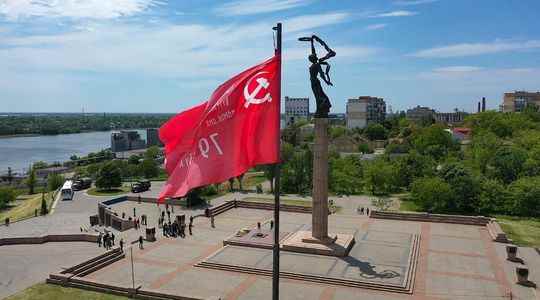The member countries of the European Union are meeting this Monday, May 30 for a new summit on the conflict in Ukraine. Volodymyr Zelensky, the Ukrainian head of state, must speak during this meeting organized in Brussels, which must determine a new package of sanctions with regard to the Russian aggressor. On the ground, kyiv ensures that it is on its way to retaking the symbolic city of Kherson, conquered at the start of the offensive launched on February 24th.
- Ukraine marching to retake Kherson
“Kherson, hold on, we are close!”, Claims the Ukrainian staff on its Facebook page. Ukraine claims to regain ground in the region of Kherson, a city strategically located in the south of the country, near the mouth of the Dnieper on the Black Sea. In its situation report published overnight from Sunday to Monday, the Ukrainian army thus ensures that it is advancing towards the villages of Andriyivka, Lozove and Bilohirka, close to the objective. No comment from the Russian side was initially made regarding these claims by kyiv of “construction of defensive lines” by Russian troops around Kherson.
This Ukrainian offensive on Kherson, on the 96th day since the start of the Russian invasion, comes as the new authorities of the city, appointed by the Kremlin, have already expressed the wish to be attached to Russia, which announced that it would allow residents to apply for a Russian passport via “a simplified procedure”.
- New sanctions on the menu of the summit
The Ukrainian president is due to speak this Monday at the start of the European summit, by videoconference from kyiv. New sanctions against Moscow are on the menu of this meeting of the Twenty-Seven. In addition to the oil embargothe sanctions package aims for the exclusion of Russian banks from the Swift international financial system, aid to Ukraine of up to nine billion euros in 2022.
This address by President Zelensky comes the day after his high-profile visit on Sunday to Kharkiv, Ukraine’s second city, in the northeast of the country. An unprecedented release since the Russian invasion at the end of February. “We will defend our land to the end. They have no chance,” he said on Sunday, meeting soldiers in the field, in bulletproof vests and fatigues, and visiting the rubble of buildings. destroyed in Kharkiv.
Attempts at mediation between Moscow and kyiv have stalled. Again this weekend, French President Emmanuel Macron and German Chancellor Olaf Scholz had a telephone conversation with Russian President Vladimir Putin, urging him to start “serious direct negotiations” with kyiv.
Russian forces, which withdrew from the Kharkiv region, continued their advance this weekend towards the key cities of Severodonetsk, relentlessly shelled, and Lyssychansk, its twin city, in the Donbass. Located on either side of the Siversky Donets River, they are threatened with encirclement by Russian forces and pro-Russian separatists, who seek to establish complete control over the Donbass mining basin. The leader of the Russian republic of Chechnya, Ramzan Kadyrov, had claimed on Saturday evening to have taken control of Severodonetsk, a city which had 100,000 inhabitants before the war.
The mayor of Severodonetsk, Olexander Stryuk, has warned of the worsening health situation in his city, which has been deprived of electricity for more than two weeks and emptied of its inhabitants. The “constant bombardments” greatly complicate the supply, especially of drinking water, to the thousands of inhabitants still there.
While Ukraine, a major agricultural power, can no longer export its cereals due to the blocking of its ports, Vladimir Putin assured, during his conversation with his French and German peers, that his country was “ready” to help a “unimpeded” export of grain from Ukraine.
- Towards a deployment of NATO forces?
In Brussels, on the eve of the EU summit, representatives of the Twenty-Seven discussed on Sunday a new proposal which would temporarily exempt a key oil pipeline for Hungary from a gradual EU embargo on Russian oil, in order to try to lift the blockage on their 6th package of sanctions against Moscow. These new sanctions are currently blocked by Hungary, a landlocked country without access to the sea and dependent on the oil brought from Russia by the Druzhba pipeline, which supplies it with 65% of its consumption.
At the same time, Westerners continue to review their defense policies in the face of the Russian threat. NATO Deputy Chief Mircea Geoana said on Sunday that the Alliance was no longer bound by its former commitments to Moscow not to deploy its forces in Eastern Europe.
In the Founding Act on relations between NATO and Russia, signed 25 years ago, the Russians had “undertaken not to attack the neighbors, that is what they are doing, and to hold regular consultations with NATO, which they do not do”, he recalled. According to him, the Founding Act “simply does not work, because of Russia”, and NATO no longer has “any restrictions” to acquire a “robust posture on the eastern flank”.
